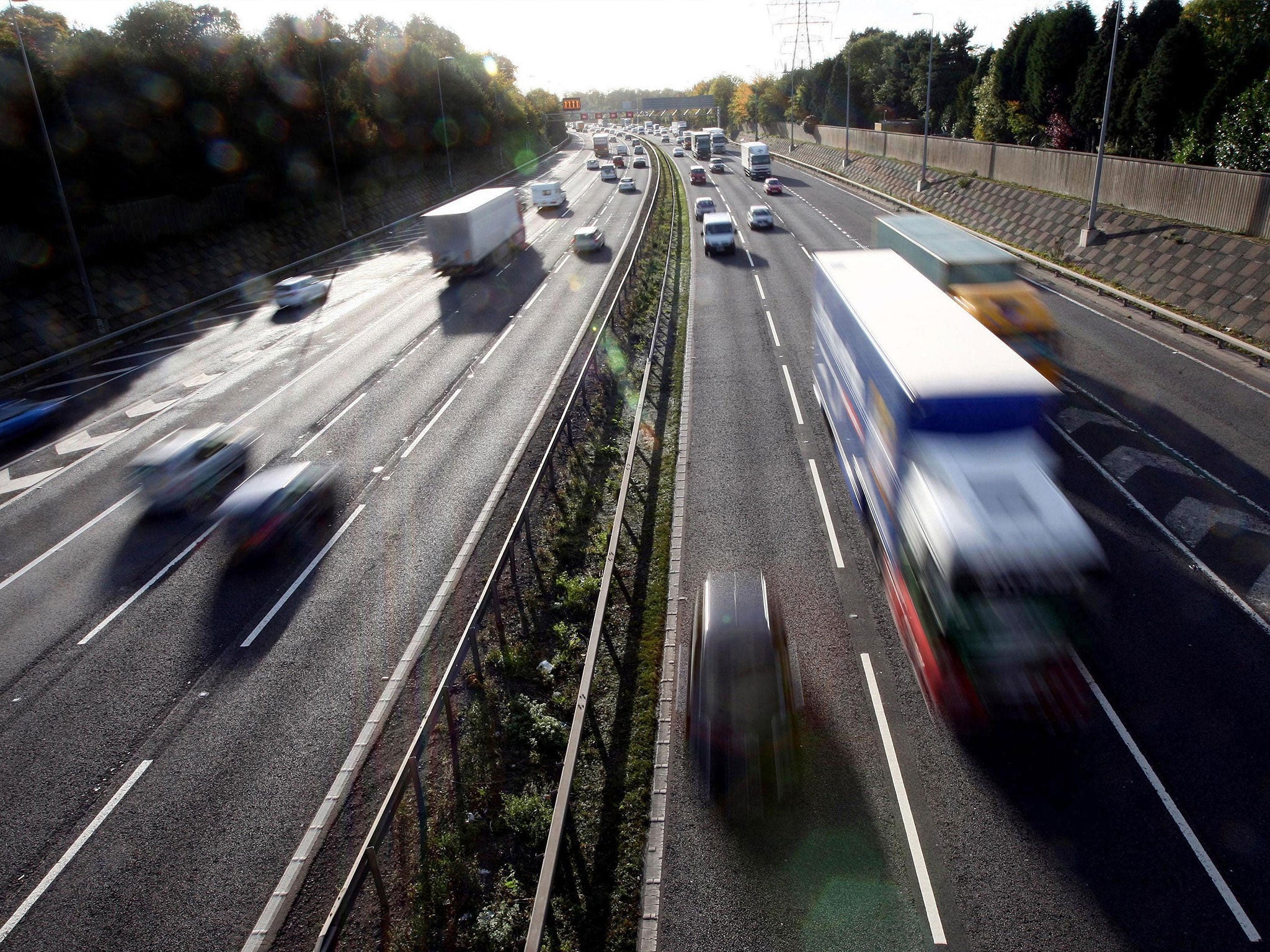Driverless lorries to be trialled on England’s motorways next year
All lorries involved will have a driver ready to take control if required

Your support helps us to tell the story
From reproductive rights to climate change to Big Tech, The Independent is on the ground when the story is developing. Whether it's investigating the financials of Elon Musk's pro-Trump PAC or producing our latest documentary, 'The A Word', which shines a light on the American women fighting for reproductive rights, we know how important it is to parse out the facts from the messaging.
At such a critical moment in US history, we need reporters on the ground. Your donation allows us to keep sending journalists to speak to both sides of the story.
The Independent is trusted by Americans across the entire political spectrum. And unlike many other quality news outlets, we choose not to lock Americans out of our reporting and analysis with paywalls. We believe quality journalism should be available to everyone, paid for by those who can afford it.
Your support makes all the difference.Platoons of self-driving lorries will be trialled on England's motorways, the Department for Transport has announced.
Up to three wirelessly-connected HGVs will travel in convoy, with acceleration and braking controlled by the lead vehicle.
Lorries driving close together could see the front vehicle pushing air out of the way, making the other vehicles more efficient and lowering their emissions.
Similar trials have already been carried out elsewhere in Europe and in the US but motoring experts questioned the suitability of self-driving lorries in the UK.
The Government has provided £8.1m funding towards the trials, which are expected to take place by the end of next year.
All lorries involved will have a driver ready to take control if required.
Transport minister Paul Maynard said: "We are investing in technology that will improve people's lives.
"Advances such as lorry platooning could benefit businesses through cheaper fuel bills and other road users thanks to lower emissions and less congestion.
"But first we must make sure the technology is safe and works well on our roads, and that's why we are investing in these trials."
The trial is also funded by Highways England and will be carried out by the Transport Research Laboratory.
Initial test track research will help to ascertain the appropriate distance between vehicles and on which roads the tests should take place.
AA president Edmund King warned that a platoon of three lorries can obscure road signs from drivers in outside lanes and could block access to slip roads.
"A three-truck platoon is longer than half a Premier League football pitch," he said.
"We all want to promote fuel efficiency and reduced congestion but we are not yet convinced that lorry platooning on UK motorways is the way to go about it.
"We have some of the busiest motorways in Europe with many more exits and entries. Platooning may work on the miles of deserted freeways in Arizona or Nevada but this is not America."
RAC Foundation director Steve Gooding said: "Streams of close-running HGVs could provide financial savings on long-distance journeys, but on our heavily congested motorways - with stop-start traffic and vehicles jostling for position - the benefits are less certain."
Road Haulage Association chief executive Richard Burnett said the organisation understands the benefits of platooning but insisted that "safety has to come first".
PA
Join our commenting forum
Join thought-provoking conversations, follow other Independent readers and see their replies
Comments